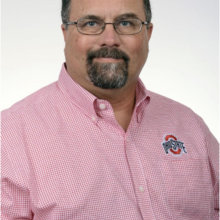IAWC M2 Introduction to Wellness & Wellness Counseling (REC June 2025, 1 CE)
Explore the evolution, driving forces, and present state of Wellness Counseling in the U.S. Gain insights for effective practice and advocacy.
01 Welcome & Module Overview
02 M2 Handouts
03 M2 Lecture Recording
04 M2 Required Readings
05 M2 References
06 M2 Required Activities
07 M2 Quiz
08 M2 Module Evaluation

Distance Based Program
Introductory
View the entire recording.
Read both of the attached journal articles related to Wellness Counseling.
Complete the post-test with a passing grade of at least 80%
Complete the course evaluation

Ohio CSWMFT Approval
This training is approved for counselor, social work, and marriage and family therapy continuing education. In addition, it is approved by the Ohio Chemical Dependency Board for chemical dependency continuing education. Check CE Broker for detailed breakdown of CE types (provider number 50-24074).
NBCC ACEP Approval
Mindfully Academy has been approved by NBCC as an Approved Continuing Education Provider, ACEP No. 7322. Programs that do not qualify for NBCC credit are clearly identified. Mindfully Academy is solely responsible for all aspects of the programs.
NBCC as an Approved Continuing Education Provider, ACEP No. 7322. Programs that do not qualify for NBCC credit are clearly identified. Mindfully Academy is solely responsible for all aspects of the programs.
Individuals with comments/questions/concerns can contact Mindfully Academy via the information provided below:
513-939-0300
Charles Potter (Program Coordinator) [email protected]
Ardell, D. B. (2020). Real wellness: Self-empowerment and the pursuit of wellbeing. CreateSpace Independent Publishing.
Barden, E. P., & Green, A. A. (2021). Wellness theory and practice: A multidimensional approach. Journal of Health Psychology, 26(7), 1054–1067. https://doi.org/10.1177/1359105320915491
Cook, C. R., Fiorini, J. J., & Renshaw, T. L. (2020). School-based wellness promotion: Theoretical foundations and implementation science. Psychology in the Schools, 57(8), 1245–1257. https://doi.org/10.1002/pits.22399
Dunn, H. L. (2021). High-level wellness: An alternative to doctors, drugs, and disease (Revised ed.). CreateSpace.
Hettler, B., & Meyers, J. E. (2023). The six dimensions of wellness revisited: A modern critique and adaptation. International Journal of Wellness Studies, 5(1), 11–24.
Keyes, C. L. M. (2020). Mental health as a complete state: Reconsidering the dual continua model. Journal of Positive Psychology, 15(4), 497–508. https://doi.org/10.1080/17439760.2020.1764952Annotated
Myers, J. E., & Sweeney, T. J. (2021). Wellness counseling: Theoretical frameworks and practical applications. The Counseling Psychologist, 49(2), 231–257. https://doi.org/10.1177/0011000020962554
Prilleltensky, I. (2020). Mattering at the intersection of wellness and fairness: A new agenda for health psychology. American Journal of Community Psychology, 66(12), 16–24. https://doi.org/10.1002/ajcp.12415
Roscoe, L. J. (2022). Wellness: A review of theory and measurement for counselors. Journal of Counseling & Development, 100(2), 180–191. https://doi.org/10.1002/jcad.12345
Seligman, M. E. P. (2021). The PERMA model: Foundations and applications in wellbeing science. Journal of Positive Psychology, 16(3), 233–248. https://doi.org/10.1080/17439760.2020.1830027